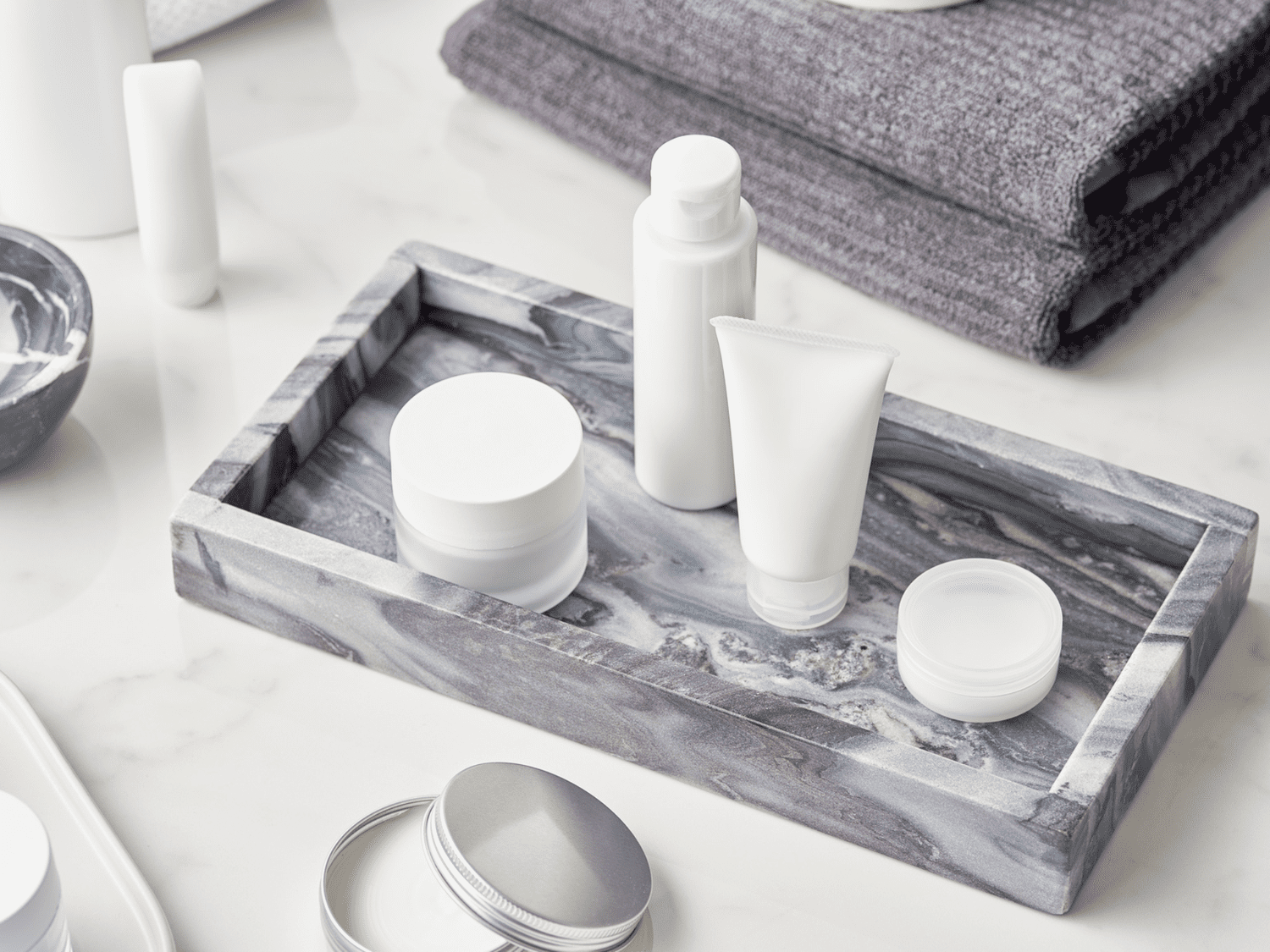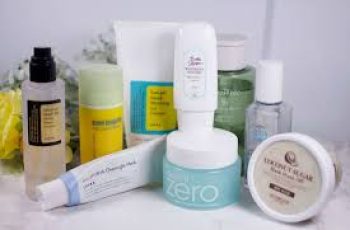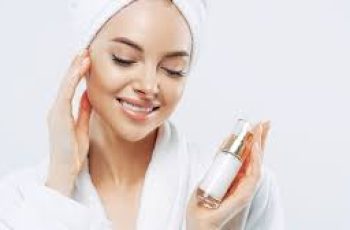We tested these popular moisturizers side by side and picked a winner. Choosing a moisturizer can be difficult, especially since there are so many options to consider. A lot depends on your skin type and the type of cream you’re looking for.
Two of the most popular daily moisturizers on the market are Vanicream Daily Facial Moisturizer and CeraVe Moisturizing Cream. They have a lot in common, and it’s no coincidence.
Both are suitable for daytime and nighttime use for all skin types (including sensitive skin), and are also sold at affordable prices in drugstores. Although both are universally recommended by dermatologists, there are differences in their formulas and containers that are important to note.
1. Vanicream Daily Facial Moisturizer: Who it’s best for: In the world of facial moisturizers, there are very few products that are free of dyes, fragrances, lanolin, parabens, and all the other controversial stuff.
Even within this small category of moisturizers, there are even fewer that don’t contain botanical extracts (i.e. oils from flowers, herbs, nuts, seeds, roots, leaves, barks, and berries), which can clog the pores of people with very sensitive skin like mine. Containing only moisturizing ingredients like hyaluronic acid, ceramides, and squalane, Vanicream pampers your skin effortlessly and effectively. 2. CeraVe Moisturizer: Who it’s for: Are you looking for a moisturizer for your face and body? Then you should consider CeraVe Moisturizer. The rich cream provides incredible moisture to all areas of the body, including dry elbows and knees, and never feels greasy. It’s popular with people of all skin types, especially those with very dry, sensitive skin. Plus, each jar contains a lot of product, so you can enjoy your purchase for a long time. What we considered? Ingredients: Moisture
Negative sensitivity
Winner: Vanicream Daily Moisturizer: I was recently prescribed tretinoin, a prescription topical cream similar to retinol that quickly exfoliates the top layer of skin to help treat acne. Although I came from
While I was excited about the results, I was unprepared for the flaky skin that appeared on my face.
To combat flaky patches, I needed a moisturizer that would provide intense hydration without clogging my pores or reacting negatively with harsh acne creams. After perusing the ingredient list, I discovered that
Vanicream Daily Moisturizer contains gentle ingredients like hyaluronic acid, ceramides, and squalane (the least likely to clog pores or cause a reaction).
CeraVe Moisturizer is also enriched with ceramides and hyaluronic acid and is recommended for extremely dry skin. Because it’s a little thicker and contains more ingredients, I wasn’t surprised when it gave me breakouts.
To find out why, board-certified dermatologist Dhaval Bhanusali, MD, explains that while CeraVe’s ingredients are nearly identical, the formula contains dimethicone, which allows for a gentler application but may clog certain areas.
Some people have enlarged pores. “Overall, Vanicream is a dermatologist favorite for very sensitive skin because it contains only essential ingredients and none of the potentially irritating ingredients,” he shares.
Container: Practical pump. Winner: Vanicream Daily Facial Moisturizer. Formulas are important, but so is the container they come in. If a product’s container can be easily tampered with, the formula could become contaminated and
actually do more harm than good.
That’s why Vanicream is the winner here. While it’s easier to get your hands into Cerave’s larger tube, the risk of dirty fingers contaminating the formula is much higher than with Vanicream’s squeeze tube.
However, Cerave formulas are sold in some stores with travel-sized pump tips or squeeze tubes. However, do your research before buying. Consistency: The texture you prefer is crucial. Winner: Tie!
Vanicream’s consistency is similar to a lotion, and it applies well and evenly. Cerave’s moisturizer, on the other hand, is thick and rich, and requires more effort to spread on the skin. There’s no right or wrong here, it just comes down to personal preference.
Personally, I have very oily skin and hate the feeling of applying moisturizer to my face. Other members of our team disagree and prefer a stronger wording. Value: Reasonably priced. Winner: Tie!
While Vanicream Daily Facial Moisturizer and CeraVe Moisturizer are similarly priced and serve the same purpose, they have different ingredients and may suit different people, making it difficult to judge their value.
While I’ve had better experiences with Vanicream than the CeraVe formula, the latter is better suited for people with different skin types. The main difference between the two is that the Vanicream Moisturizer is less comedogenic and better suited for oily, acne-prone skin, while the CeraVe Moisturizer is meant for dry skin.
In terms of design, I prefer the Vanicream because it has a squeeze tube, but CeraVe redesigned the packaging in a few places and added a pump cap to avoid contamination from the larger tube. Both options are great, but you should consider your skin type before buying. What to Expect When buying a moisturizer, you can expect to pay anywhere from $5 to over $400.
When choosing the right moisturizer for you, consider how often you should use it and which ingredients are most important to you. Both the Vanicream Daily Face Moisturizer and the CeraVe Moisturizing Lotion have drugstore formulas that are reasonably priced, and to be honest, they’re pretty cheap considering how effective they are.
What is Byrdie Verified?
Did you notice the Byrdie Verified seal of approval at the top of this article?
This seal means our team has researched and tested every product on this list using a unique methodology that focuses on what our readers really want to know and provides insights you won’t find anywhere else. Sometimes beauty brands and PR agencies send us samples to report on, but our thoughts and opinions are our own.We may earn commissions for purchases you make when you visit links within our content, but we are never compensated or paid for the content we recommend. In Short: The Byrdie Verified seal represents a product recommendation you can trust.
DQH Knowledge drop: In your 20s, your skin cell turnover decreases. (Cell turnover is a key component in keeping your skin youthful.) You know what else slows down? Your collagen production. Starting in your 20s, collagen decreases by about 1 percent per year. Should you want to prevent fine lines and wrinkles, start by eliminating behaviors that contribute to premature aging. “If it’s bad for you, it’s bad for your skin,” says dermatologist Michel Somenek.
“Cigarette smoking reduces blood flow to the skin and causes premature wrinkling and a dull skin texture. Making the repeated pursed motion to inhale can also cause smoker’s lines. Alcohol and recreational drugs are toxins for the skin that damage its cellular structure and DNA,” Somenek tells us. “The faster you eliminate vices while you are young, the better chance your skin and body have to recuperate.” Also, adopting an anti-aging routine in your 20s is key. After all, the best offense is a good defense. We spoke to Somenek and experts Joshua Ross and Audrey Kunin to find out more.
Keep reading for the best anti-aging products for your 20s, according to skincare professionals.
Sunscreen
“We all know that the sun is the number one cause of skin aging and starting the prevention in your 20s is very important,” Ross says. “The majority of your sun damage won’t start to appear until you’re in your 30s, so don’t wait until you see it surface or you’ll be behind the curve. Stay ahead of it with a good-quality zinc-based sunscreen worn daily.”
Farmacy Green Defense Daily Mineral Sunscreen
An invisible sunscreen with SPF 30, plus botanical extracts meant to protect skin with tons of antioxidants. Bonus: It’s clean and fine to use under makeup.
Bareminerals Complexion Rescue™ Tinted Moisturizer Broad Spectrum SPF 30
Although we recommend you use your SPF and moisturizer separately, we also understand moments when you don’t have time or energy for that extra step. For those times, this bareMinerals moisturizer is a great thing to have on hand.
Vitamin C Serum
“A great introduction to anti-aging is to start with a vitamin C serum in your morning skincare routine,” Ross says. “It’s a powerful antioxidant that will neutralize free radicals and brighten the skin.” He adds that it’s a great way to counteract the effects of the sun’s harmful rays, which, as previously mentioned, are among the biggest causes of premature aging.
Drunk Elephant C-Firma™ Vitamin C Day Serum
The Drunk Elephant C-Firma is a lightweight serum that promises to give skin a glow by combining the brightening powers of vitamin C with ferulic acid, l-ascorbic acid, and vitamin E. The included sodium hyaluronate is meant to replace hydration loss, so you shouldn’t have to deal with any irritation.
Sunday Riley C.E.O. Rapid Flash Brightening Serum
This potent serum is jam-packed with vitamin C (15 percent, to be exact), which means it’s a potential superstar at both brightening skin and dousing it in antioxidants.
Peptides
Using peptides on your skin has many benefits, says Somenek. “The skin barrier is what defends the body against pollution, UV rays, bacteria, and toxins. It can be damaged by several everyday factors. Using topical peptides aids in building a stronger barrier,” he says. “Peptides comprise elastic fibers, which are a type of protein. These fibers help to make skin appear taut and firm. Peptides can also help repair damaged skin, relieve inflammation, and even out skin tone. Some peptides can kill acne-causing bacteria that is common in 20-somethings.”
Kunin agrees, saying, “Peptides are an excellent entry point for supporting collagen.” She recommends looking for face and eye treatments that contain these collagen-boosting powerhouses.
Charlotte Tilbury Magic Eye Rescue Cream
This Charlotte Tilbury super-emollient eye cream has a base of coconut oil and shea butter (read: it’s incredibly hydrating). Botanicals plus peptides are meant to help reduce dark circles and boost collagen, respectively.
This creamy moisturizer serves up potent collagen-boosting peptides and pycnogenol, and antioxidant-rich vitamin C. “Instead of sitting on top of the skin, peptides penetrate the outer layer so they go deep. The ‘signals’ they send tell the cells to produce elastin and collagen, which are needed for youthful-looking skin,” explains Somenek.
At-Home Peel Pads
Remember that skin cell turnover fiasco we talked about earlier? One way to help support it is by exfoliating. “Exfoliation is important to help keep skin fresh and luminous,” Kunin says. She recommends using at-home peel pads as an easy and effective way to exfoliate.
“The goal in your 20s is to fight the slowing pace of cell turnover. It is wise to use products that gently exfoliate, yet still remove oil and other impurities. Products that have Alpha Hydroxy Acids (AHA) or Beta Hydroxy Acids (BHA) are a good choice.”
According to Somenek, you should only exfoliate two to three times a week. “People of all ages are guilty of over-exfoliating and that can be too much of a good thing,” he says.
Dermadoctor Kakadu C Intensive Vitamin C Peel Pad
A few swipes of this Derma Doctor powerful peel pad promise to leave your skin glowing and smooth, thanks to the seven (yes, seven) types of chemical exfoliants, including AHA and BHA. It also contains vitamin C via Kakadu plum extract for added brightening and antioxidant protection.
KEY INGREDIENTS Kakadu plum extract is sourced from the Kakadu plum, a fruit grown in northern Australia. It contains vitamin C, which restores the skin’s natural barrier, increases collagen production, and soothes irritation.
Dr. Dennis Gross Skincare Alpha Beta® Universal Daily Peel Pads
These are the gold standard of peel pads, with a cult following and over 900 five-star reviews on Sephora. They’re easy to use and contain a blend of anti-aging exfoliating acids.
Emollient Night Cream
“In your 20s, you need to start upping the hydration in your skincare routine. You may have been cautious of over-moisturizing because of acne in your teens, but as you enter your 20s, your skin transitions and becomes drier,” Ross says. “I recommend an emollient night cream added into your evening skincare regimen.”
“Twenty-somethings need to make sure that they are not using creams that will clog their pores and cause excess oil production,” says Somenek. Opt for non-comedogenic products.
Cerave Skin Renewing Night Cream
One great choice is the CeraVe Skin Renewing Night Cream, which is a non-comedogenic night cream that leaves skin soft and glowy. It combines the moisturizing powers of ceramides and hyaluronic acid.
RoC Retinol Correxion Max Hydration Creme
“The best night cream ingredients contain retinol, benzoyl peroxide, and/or salicylic acid or hyaluronic acid. The goal is to moisturize, yet remove excess oil,” says Somenek. This Roc Retinol Correxion cream fits the bill as it contains both hyaluronic acid and retinol so it promises to moisturize while also being non-comedogenic.



